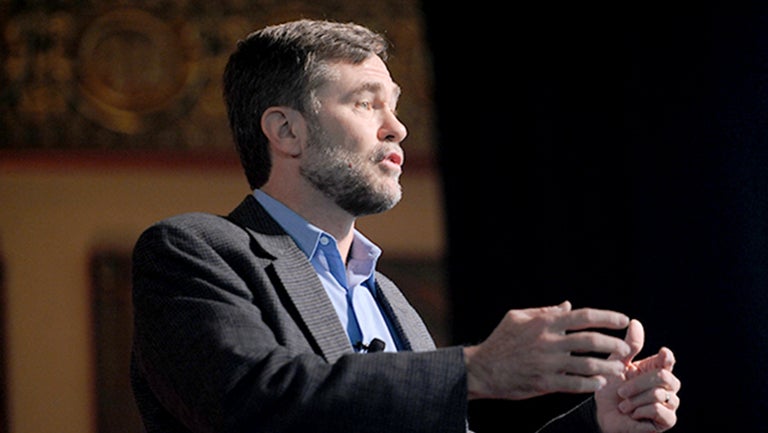Title: ‘Great Surge’ Book Says Huge Progress Made by Global Poor
Contrary to popular belief, the greatest progress among the global poor in the history of the world is happening right now, says Steven Radelet, Georgetown’s Donald F. McHenry Chair of Global Human Development, in his new book.

– Contrary to popular belief, the greatest progress among the global poor in the history of the world is happening right now, says Steven Radelet, Georgetown’s Donald F. McHenry Chair of Global Human Development, inThe Great Surge: the Ascent of the Developing World.
“If you find that hard to believe, you are not alone,” writes Radelet in his newest book, to be published Nov. 10 by Simon & Schuster.
The former USAID chief economist says in the past two decades more people in developing countries have made progress in reducing poverty, increasing incomes, improving health, reducing conflict and war and spreading democracy than ever before.
Unprecedented Transformation
Radelet, who also serves as director of the Global Human Development Program at Georgetown, says that since the early 1990s, 1 billion people have been lifted out of extreme poverty.
“This captivating book shows that progress for the world’s poor is not just possible, it is happening right now all around the world,” writes Liberian President Ellen Johnson Sirleaf, whom Radelet serves as an economic advisor, in a review of the book.
Radelet attributes what he believes is a major transformation to factors such as huge geopolitical shifts, changing economic and political systems, deepening globalization, access to new technologies and stronger leadership.
He says he was able to observe this trend because of his diverse work experiences as an advisor to foreign governments, as part of the United States government and as an academic.
“Each of these experiences gave me the opportunity to observe the breadth and depth of the changes that were underway from different angles in a way that focusing deeply in one area would not afford,” he says.
Challenges Ahead
Joel Hellman, dean of Georgetown’s School of Foreign Service says the book “reminds us how much we have to celebrate in the struggle to reduce poverty over the past 25 years, but also how much further we have to go.”
“In an era where development assistance has been so heavily criticized, he challenges us to see what went right and what lessons can guide us in the next phase of poverty reduction efforts,” Hellman adds.
While Radelet says he is optimistic that the great surge can continue, he’s not sure that it actually will.
“Developing countries face many great challenges in the coming years climate change, population growth, tensions around the rise of China and the possibility of spreading conflict, just to name a few,” he explains. “Understanding the great surge of progress, what has been achieved, and what is yet undone will help us understand the choices, investments, sacrifices and decisions that must be made to continue this progress well into the future.”
Global Benefits
Continued progress in developing countries is also good for Western countries, Radelet says.
As he details in the book, improvements in the developing world enhance overall global security, benefit trade, business, and ultimately global income growth, and spread shared values of openness, prosperity and freedom.
“I purposively explored many different indicators of development – such as economic growth, poverty reduction, health, education, food production, conflict, access to water and sanitation and personal freedoms,” Radelet notes.
Human Development
The book resonates with the human development or “capabilities approach” embraced by Georgetown, which led the university to form the Global Human Development Masters program in 2012 and host the 13th annual conference of the Human Development and Capability Association earlier this fall.
“Georgetown has a long history of engagement with the study and practice of human development,” said Georgetown President John J. DeGioia atthe HDCA conference. “A distinctive approach, deeply rooted in our Catholic and Jesuit tradition and beginning with the conviction that every human life possesses an inherent dignity, characterizes all of our work,” he said.